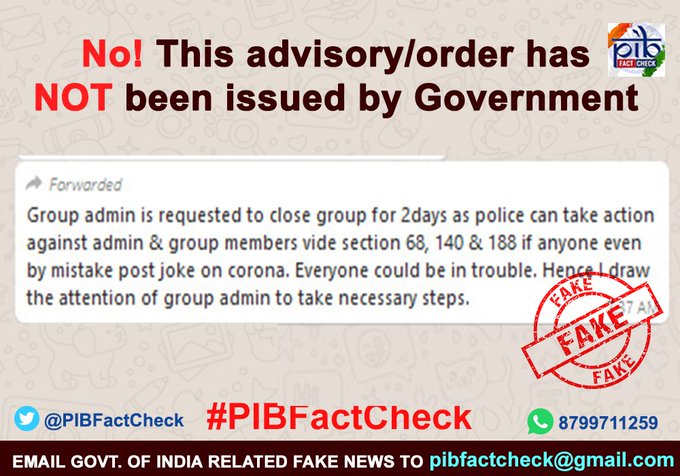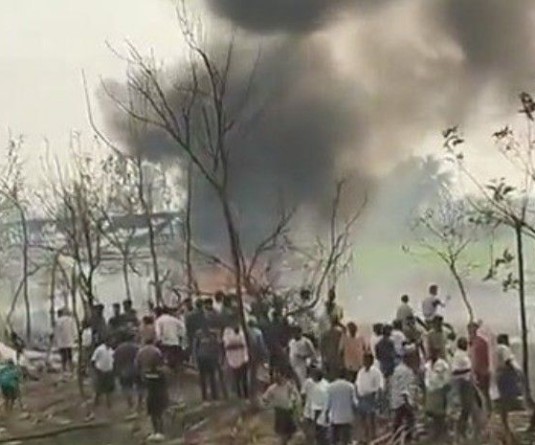Fake News Alert

Image Courtesy: PIB Fact Check @PIBFactCheck / Twitter)
Morung Express News
Dimapur | April 7
Have you received viral messages on WhatsApp and other social media platform recently warning against sharing COVID-19 jokes and informing that only Government agencies are allowed to share news on the pandemic.
Consequently, the fake messages urged WhatsApp group administrators to close the groups for two days amid the COVID-19 outbreak and the lockdown.
Here is a sample:
“Group admin is requested to close group for 2days as police can take action against admin & group members vide section 68, 140 & 188 if anyone even by mistake post joke on corona. Everyone could be in trouble. Hence I draw the attention of group admin to take necessary steps...
Dear All,
Mandate for All:
Tonight 12 (midnight) onwards Disaster Management Act has been implemented across the country. According to this update, apart from the Govt department no other citizen is allowed to post any update or share any forward related to Corona virus and it being punishable offence.
Group Admins are requested to post the above update and inform the groups.
Please adhere this strictly (sic). ”
Along with the message a news report published by the Live Law on March 31, an online news portal dealing with legal issues, is shared with in one of the message.
‘This is Fake! No such order has been issued by the Government,” stated Press Information Bureau’s (PIB) Fact Check, which counters such fake news as well as misinformation on government policies or schemes.
On its official Twitter handle, the PIB Fact Check (@PIBFactCheck) on April 6 posted that a “fake message is going around on social media claiming that legal action would be taken against admin and group members who post jokes on #Coronavirus , hence group admin should close the group for 2 days.”
No such order has been issued by the Government, PIB Fact Check added. (Check the update here)
Meanwhile, the Live Law, in an article on April 4 (Check here), also clarified on viral fake news being shared along with the article it published on March 31.
According to the clarification, the March 31 report is about the Central Government seeking a direction from the Supreme Court that no media “outlet should print, publish or telecast anything on COVID-19 without first ascertaining facts from the mechanism provided by the government.”
“The report has no connection with the fake message. It is clear from a bare perusal of the report that it does not convey the news as sought to be spread through the fake message,” it added.
“The report also has an update about the order passed by the Supreme Court later, after hearing Centre's submissions. The Court did not pass any order that no person other than the Government is allowed to share news about COVID-19,” Live Law clarified.
“The Court expressed concerns about the spread of fake news in relation to the pandemic, and urged media to be careful in reporting. The Court expressly stated that it was not intending to curb free discussion on the pandemic; but asked the media to publish the official version,” it said.
"We do not intend to interfere with the free discussion about the pandemic, but direct the media refer to and publish the official version about the developments,” assed the report quoting the observation by the Supreme Court during the hearing.
With the COVID-19 pandemic causing panic and concerns, fake news often with malicious intention are proliferating in the social media.
While the government has not issued any order banning or sharing jokes on social media platform, however, many government agencies both at the centre and states has cautioned against sharing fake news or rumours.
Readers are advised to ascertain facts from verified media outlets, government websites and social media handles, and fact checking agency like PIB Fact Check before sharing such messages.






